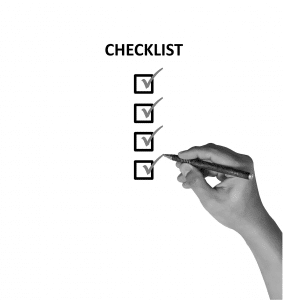Do you have a Health Savings Account (HSA)? If not, you could be missing out on some savings. HSA allows you to set aside pre-tax money to help pay for out-of-pocket medical expenses; they are particularly helpful for people with a lot of medical expenses, but they are not compatible with all health insurance plans. Before the Open Enrollment Period is over, find out how HSAs work, if you qualify for one, and if it is worth setting one up.
What Is a HSA?

The ACA’s Open Enrollment Period runs from November 1 – January 15 this year, so now is your chance to make sure that your health insurance will work for you next year. That includes considering new ways of helping fund your healthcare expenses, like with a Health Savings Account (HSA). So how do these accounts work?
HSAs are savings accounts that allow you to set aside a certain amount of pre-tax income to pay for healthcare needs/bills. There are a few important things to note about these accounts: first, you are only eligible for a HSA if you are enrolled in a qualified high-deductible health plan. Next, there is a limit to how much you can put into these accounts each year: limits on annual HSA contributions for coverage beginning in 2022 are $3,650 for individuals and $7,300 for families. Some employers will contribute to your HSA; if they do so, you will still not be able to exceed the annual contribution limit. The money that you both contribute is pre-tax, earns tax-free interest, and will not be taxed when you withdraw it to use for qualified medical expenses.
Advantages of HSAs
Aside from being an excellent way to pay for your out-of-pocket medical expenses, HSAs have:
- Tax benefits– Any money put into your plan up to the annual limit is untaxed. If you enroll in a HSA separately from an employer’s health insurance plan, your HSA contributions are tax-deductible. This means that if you put the maximum amount of $3,650 into your HSA and make $50,000 annually, you will be taxed as if you earn $46,350, which could possibly put you into a lower tax bracket. And if your account grows, you will not be taxed on the growth, nor will you be taxed if you choose to make any withdrawals for medical expenses.
- Investment options– You have the ability to invest the capital of your cash account, so you can grow your untaxed funds.
Do You Qualify?
Not everyone qualifies for a HSA. In order to be eligible for one, you must:
- Be covered under a qualified high-deductible health plan (HDHP). For 2021, a HDHP is a health insurance plan with a deductible of at least $1,400 for individual coverage or $2,800 for family coverage.
- Not be covered by any other medical plan.
- Not be enrolled in Medicare.
- Not be claimed as a dependent on someone else’s tax return.
- Not be enrolled in TRICARE or covered by medical benefits from the Veterans Administration.
Is a HDHP Right For You?
As pointed out above, in order to set up a HSA, you need to first have a high-deductible health plan (HDHP), so before you decide whether a HSA is right for you, you’ll have to decide if a HDHP is also right for you. These plans are great for people who are generally healthy, and do not see the doctor often, because the deductible is so high. But in return for the high deductible, you will have low monthly premiums, so if you’re looking to save money on your monthly premiums and think you will not reach your deductible amount because you don’t go to the doctor aside from annual checkups, this might be the right type of plan for you.
HSAs are a great savings tool that will help you pay for any out-of-pocket medical expenses, but you’ll first have to consider if a HDHP is right for you and/or your family. If you are interested in a HDHP and a HSA, an EZ agent can help. We will do all the research and comparison for you and find you the plan that will best suit your needs. To compare quotes in minutes, at no cost, enter your zip code in the bar above, or to speak to an agent, call 888-350-1890.













